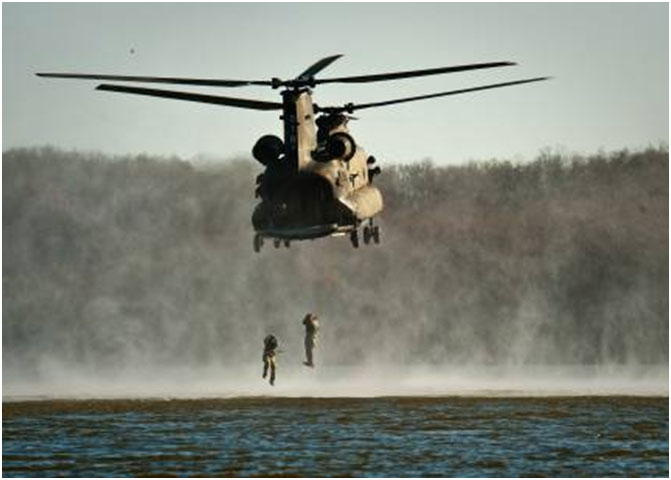
Lexie Palmore's college education in commercial art did not prepare her for her present career as a river pilot. Lexie serves as the pilot aboard the famous Mississippi paddleboat, the Delta Queen. A graduate of a training program for pilots, Lexie enjoys life on the river but feels the rigors of her demanding schedule: "You have to feel comfortable traveling all the time. I don't have a family of my own, so that isn't a problem for me."
Pilots take ships safely through ports, harbors, and rivers. By law and by custom, ships must take aboard a harbor pilot as they prepare to enter a port to guide the ship into its docking. At prearranged locations, harbor pilots meet and go aboard ships. Pilots also guide vessels out of port. For example, ships coming into the port of Philadelphia will be met by a pilot boat out of Lewes, Delaware, just as the ship passes the breakwater and enters Delaware Bay. The pilot possesses intimate knowledge of the harbor and the channel that the ships follow and keeps abreast of changes to maintain the safety of the ship and the harbor (particularly with regard to supertankers) and to avoid running aground. While pilots do give orders, the captain remains responsible for the ship and, consequently, stays in command.
Pilots serve the inland waterways as well as the major coastal harbors. The duties of a pilot on inland waters involve reporting to the captain and responsibility for two six-hour navigation watches, the safety of crew and tow while on watch, communications (navigational reports to the captain), prediction of vessel fuel utilization, and log entries while on watch.
Many years of experience aboard ships or towboats are necessary in order to become a river pilot. As with other maritime personnel, pilots must have a license. License specifics vary with the water route over which the pilot will function.
An organization that trains pilots, as needed, is the Seafarers Harry Lundenberg School of Seamanship. This school requires all applicants to show evidence of three years of service in the deck department on steam or motor vessels; eighteen months of this time shall have been as able seaman or equivalent. Of these eighteen months, one year shall have been in the capacity of quartermaster, wheelman, or an equivalent position that included standard regular watches on the wheel and in the pilothouse as part of routine duties. This service shall have been on vessels operating on the waters of the class for which pilot age is sought, and 25 percent of this service shall have been obtained during the three years preceding the application for licensing.
All candidates must have made the minimum number of normal trips over the route for which the applicants seek licensing as pilot. This minimum is determined by the OCMI (Officer in Charge, Marine Inspection) of the jurisdiction. All candidates must have made one normal trip over the route within six months immediately preceding the date of application. John Wiegman, Assistant Director at the Lundeberg School notes, "During some periods there exists a surplus of pilots, hence school training ceases."
Admission to membership in a harbor pilot's organization is often difficult to obtain. Entrance to the United New York and New Jersey Sandy Hook Pilots Benevolent Association is obtained normally through a relative; each pilot has the right to nominate one candidate at a time. Captain Cornelius Keating, who entered the system without going through a relative, believes it is important that the job be in your blood. "It can get very dangerous... but if you're looking forward to being a pilot you'll go." Harbor pilots undergo a lengthy apprenticeship, but salaries are excellent.
Some special opportunities do exist in this field. On the Delaware River, a fleet of ships (Good Ship Lollipop, Rainbow Yacht, and Showboat) take people on a tour of the harbor. These smaller versions of the old Mississippi steamboats have young people as their pilots. As high school students, they worked summers as deckhands before becoming pilots. Susan Ardary, owner of the Rainbow Fleet, explains, "They work their way up, get experience on the ship, then apply for their special license for passenger vessels from the Coast Guard. Of course, they must pass a rigid test before they earn their license."
ACADEMIC CAREERS
A number of careers exist in colleges, universities, and technical institutes as teaching and research faculty.
Individuals in these occupations teach courses ranging from oceanography and maritime history to literature of the sea and trends in aquaculture. Those in these university careers have strong educational backgrounds normally possessing master's and doctoral degrees. Those teaching technical courses have significant experience in their field.
These individuals enjoy the marriage of teaching while still participating in the practical world of water. In addition, they possess intellectual curiosity pursuing new knowledge through research and development.
See the following articles for more information:
- Find Your Calling: A Checklist
- 5 Ways To Build Your Career Outside of the Office
- How To Impress Your Interviewer When Making a Career Change
- 5 Tips For Successful Networking
